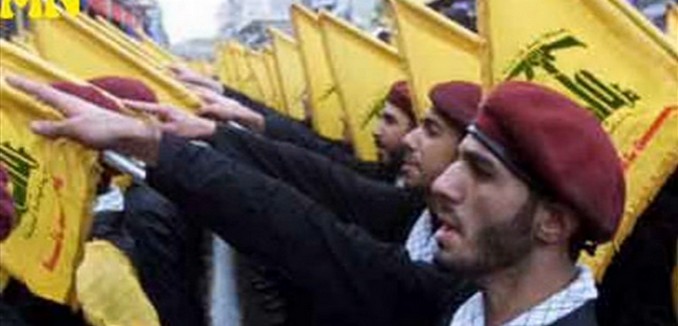The Iran-backed terrorist group Hezbollah recently raided drug houses in a Palestinian refugee camp in southern Beirut, underlining its increasing entanglement with the Lebanese government.
“This is what a country that has given up its authority in favor of the ‘tiny state’ looks like,” said Ashraf Rifi, a Hezbollah critic and former justice minister of Lebanon.
“Arab media outlets opposed to Hezbollah emphasized the irony of having Hezbollah launch a war on drugs, when the organization itself is accused of using drug trafficking as a central source of income,” Ynet News reported.
Last October, three men linked to Hezbollah were accused of laundering drug money on behalf of the Colombian cartel after United States authorities said they illegally moved $500,000 into Miami banks. The U.S. Drug Enforcement Agency announced in February 2016 that it had arrested several individuals after investigating a “massive” international drug trafficking and money laundering operation run by Hezbollah. The agency said that Hezbollah worked with drug cartels to supply cocaine to the U.S. and Europe, then laundered the proceeds in a scheme that helped “provide a revenue and weapons stream for an international terrorist organization responsible for devastating terror attacks around the world.” Two Hezbollah officials were sanctioned for money laundering by the U.S. Treasury Department a week earlier.
This is not the only instance demonstrating Hezbollah’s entrenchment with the Lebanese state. Lebanese President Michel Aoun said in February, “As long as the Lebanese army lacks sufficient power to face Israel, we feel the need for (Hezbollah’s) arsenal because it complements the army’s role,” therefore legitimizing the terrorist group’s weapons and cloaking it in the Lebanese flag. Aoun’s comment has raised concern among Israeli officials that the next attack by Hezbollah will be backed by Lebanon’s army.
Hezbollah and the Lebanese army share a close relationship. In a military parade in Qusayr, Syria last November, the Iran-backed group showed off a variety of arms and vehicles, including American M113 armored personnel carriers. The U.S. provides military aid to the Lebanese army, raising concern among Israel’s security establishment that American weapons and vehicles will continue to end up in the hands of Hezbollah.
This undoing of “the separation between Hizbullah’s military power and the Lebanese army” means that Israel will face “a single force, [which] will enable Israel to operate freely against the Lebanese state, including its army and civilian infrastructures, at any time that Hizbullah acts against Israel,” Brig. Gen. (ret.) Dr. Shimon Shapira, a senior research associate at the Jerusalem Center for Public Affairs, wrote last month.
[Photo: gnosticx / YouTube ]




